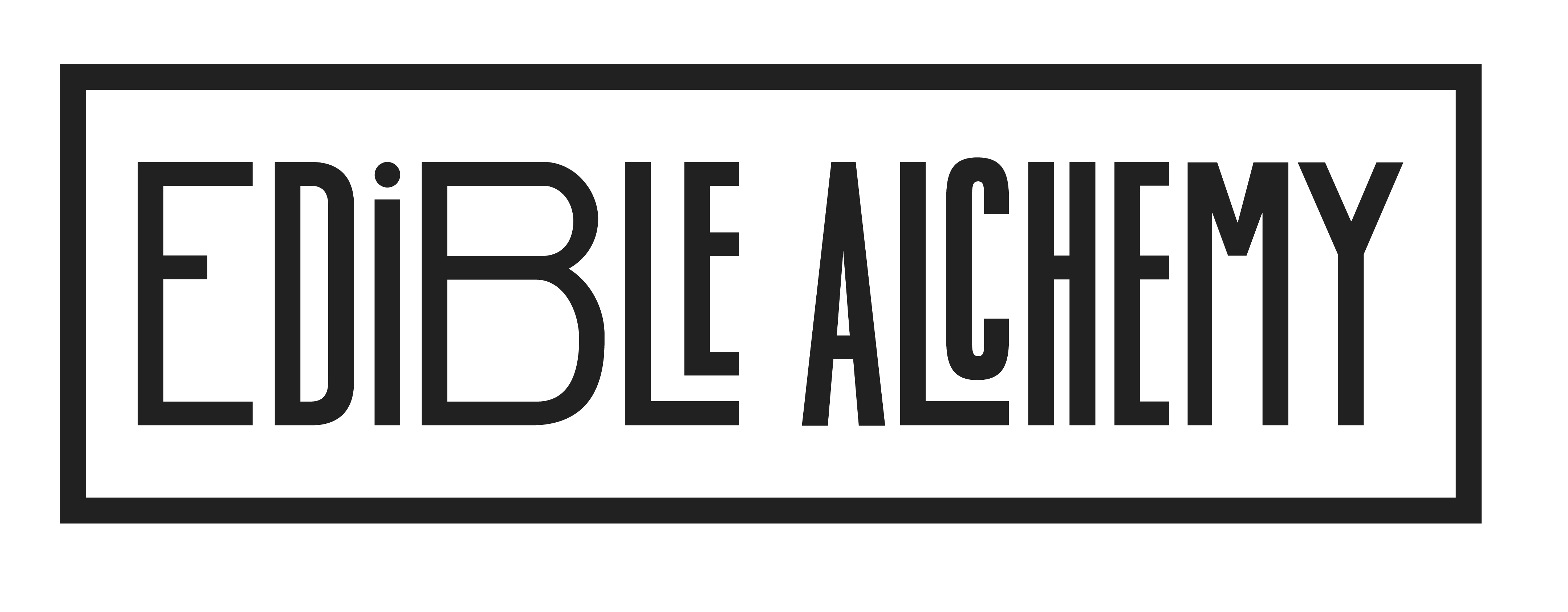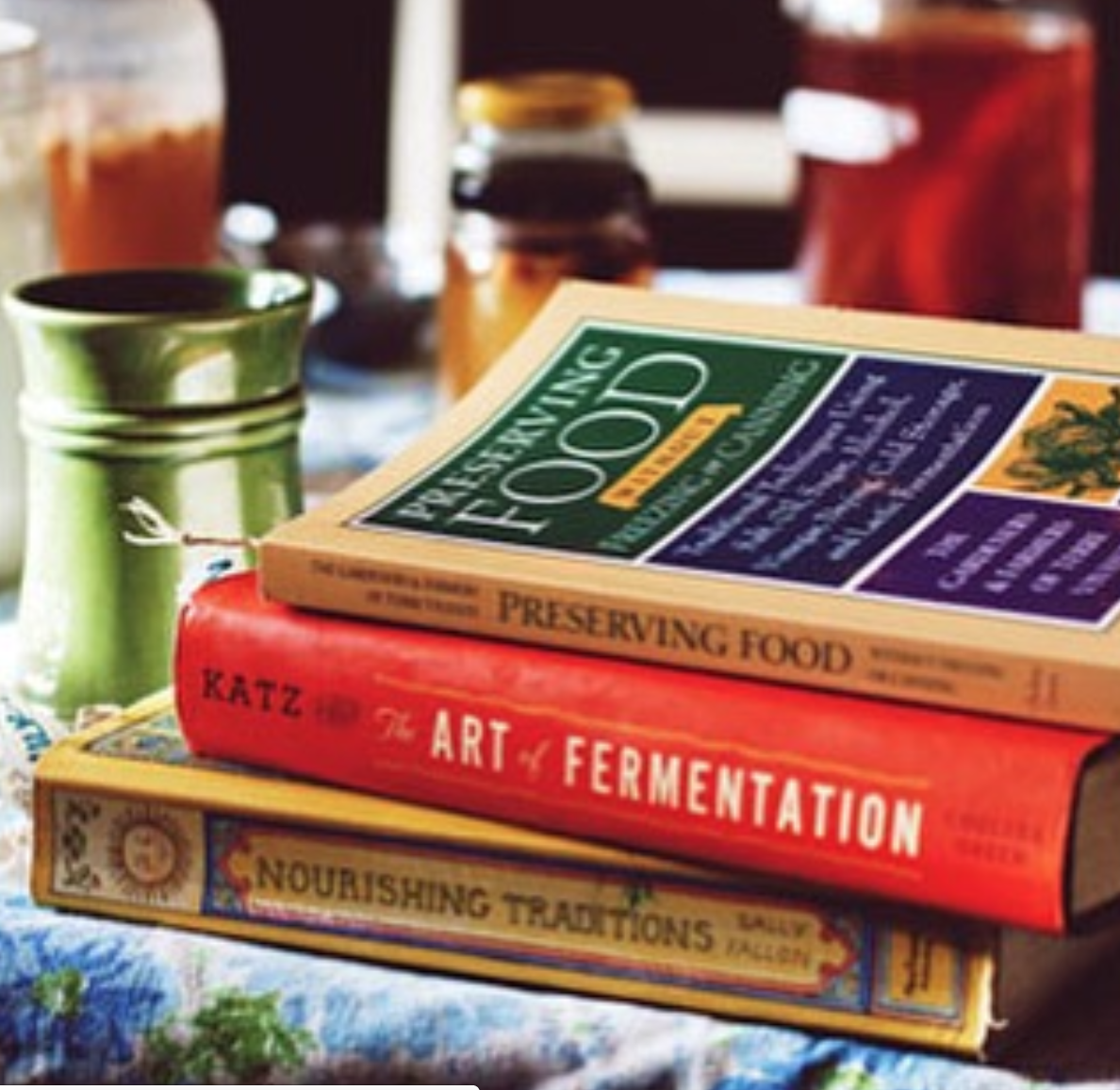We have been asked the question often about Edible Alchemy’s favorite and most useful books revolving around the theme of Fermentation, DIY foods, Foraging & of course all about the Microbiome.
Over the last 8 years we have been pouring over books that dig into what fermentation means, how to do it, and now with recent scientific discoveries, what a healthy vs. unhealthy microbiome means.
We have also filtered through a lot of junk, as there is always more and more that is out there and it’s sometimes hard to distinguish the wheat from the chaff.
So here we’ve created a short and concise book list that are resources we continuously go to when we have questions or want to dig further into this world.
Check out our book list that has been a contributing factor to lead us to where we are today. And there are always more to discover and explore!
Scroll down and check it out – try your local library to see if they too might have a copy!
Sandor Ellix Katz is known as the pioneer of the recent fermentation trend. This book has been, and still is my go-to Bible for fermentation skills. There is practically every technique you could imagine; from fermenting veggies, to grains, to starchy vegetables and more. I should also mention that he writes with passion and from the heart and is so on point with making connection between fermentation and society.
He expands on this connection with his most recent book Fermentation as a Metaphor. Also highly recommended!
Braiding Sweetgrass, as mentioned in the subtitle, weaves Indigenous wisdoms, scientific knowledge and the teaching of plants together in a poetry that makes me look at lichen and moss differently. As foragers and simply as humans on this earth, it is important to see and understand the interconnectedness and impact that we have. As Kimmerer points out, it can even be positive if we know what we are doing!
If you like cheese, and are curious to know what is behind cheese making, what is behind real living cheese, and what is all possible to do yourself, David Asher’s book is the way to go. Again, pure inspiration for DIY projects. I even use some of these techniques for vegan nut and seed cheese!
When I started to seriously dig into foraging in the city, this book was a great resource for me. John Rensten writes in a diary fashion about his foraged findings from January to February.He includes well written and drawn descriptions and various recipes to accompany each plant. Although his adventures are in the UK, most of the plants (excluding the sea-side specimens) are also around in Berlin / Brandenburg and surrounding areas.
I have to put three of Pascal Baudar’s books here! As I read his books, I feel we are kindred spirit in the way we encourage people to stray away from the recipes given and experiment, observe, take notes and create! If you are a strict recipe follower, these books are still for you, however, if you are not, use these books as educational inspiration for foraging and fermenting.
Okay, this one is in German (as I originally read it) however as it is such a good book, it is written in some other 25 languages, and thus also as The Hidden Life of Trees in English. Here we can read the interconnectedness of trees; how they ‘smell’, how they ‘talk’ and even help each other out. For forest lovers – a must read!
Yes, I have it. Yes, I love it! If you are getting those craving for UMAMI (the tasty taste) and want to go deeper into achieving this yourself, NOMA can help you.
Giulia Enders explains it all. If you have ever been curious to know what is going on from eating that slice of cake to, well you know… and why diet is so vital to our overall health, Enders disregards the poo-taboo and gives a great scientific yet easy to understand overview. I read this in German, but it is also available in English.
These are just a few that are the ever growing library. #learnsomethingneweveryday
Feel free to let us know your favorite books or even let the Edible Alchemy community know via our facebook group!













